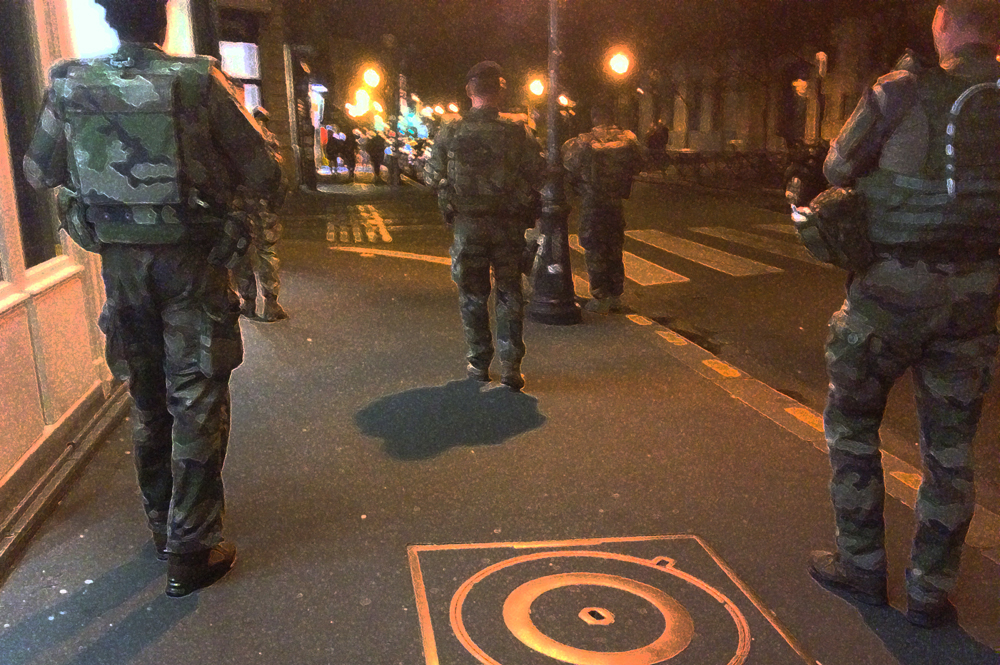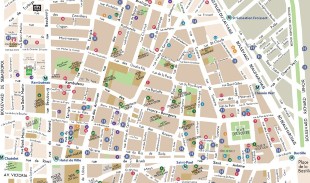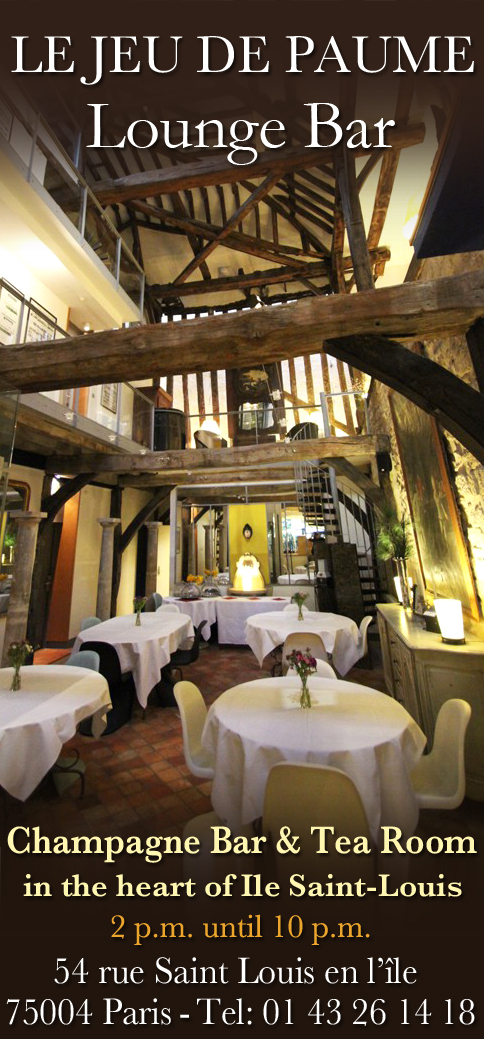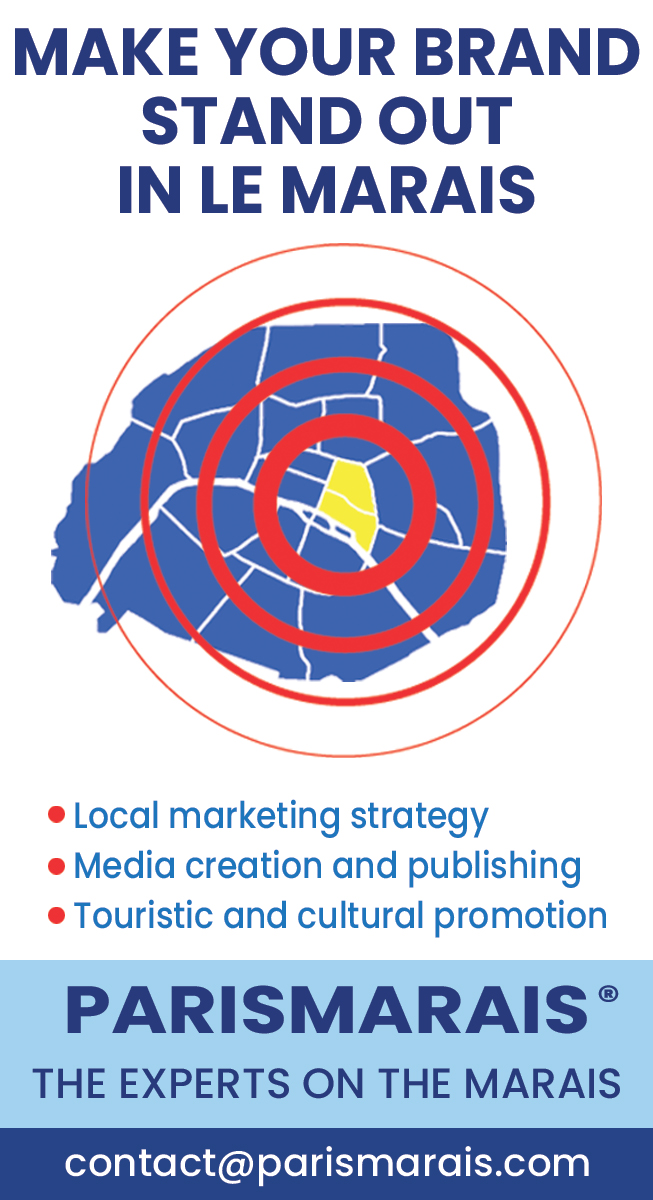Safety in Paris' Marais District.
A top tourist destination and the City of Light, Paris is one of the most visited capitals in the world. Every year, it welcomes more than 30 million tourists.
Although the police force are highly-effective inmaking Paris a safe place, tourists may nevertheless be a target for pickpockets and crooks in the city’s streets.
Welcoming visitors : a priority
For several years now, the Préfecture de Police has been developing a policy devoted to the welcoming of tourists.
The Paris police has reception points open to the public throughout the capital. Amongst these, the 20 main police stations of each arrondissement are open 24/24, 7/7 in order to take charge of victims and provide them with help and assistance.
Visitors can speak to bilingual police officers. The latter can be found at reception desks in police stations or on duty in the streets and in summer they wear a
badge on which a flag indicates what language(s) they speak. They can answer all kinds of questions, from the simplest requests for information (giving directions, indicating tourist sites, etc.) to more sensitive questions concerning theft or assault, and are a valuable help to tourists who do not speak French.
During the lodging of a complaint, the software application S.A.V.E. (Assistance system for foreign victims), available in 16 languages, now enables every police officer to register the complaint of a foreign tourist and give them a receipt in their language of origin, thus simplifying any future administrative steps that the visitor may need to take at their embassy or in their country
.jpg)
To avoid being a victim, follow this advice
Be vigilant in the street
- it is best to carry a small bag across your shoulder or wear a concealed pouch rather than a back pack;
- carry a minimum of cash with you;
- don’t keep your wallet in a back pocket;
- if an attacker tries to snatch your bag, don’t try to stop them as you will risk being injured;
- beware of individuals who try to divert your attention so that they can steal your personal belongings, notably on cafe terraces, when you are withdrawing money from automatic teller machines (ATMs) or when you are signing petitions.
On public transport
- don’t leave your baggage unattended;
- don’t let anyone go behind you through the ticket barrier;
- never buy tickets from illegal street sellers: they’ll charge you much more (up to 10 times the normal price). Use the ticket desks and ticket machines in train stations and metro stations.
Protect your vehicle from being stolen
- lock the doors and boot and make sure you close the windows of your vehicle;
- don’t leave valuable objects where they can be seen (mobile phone, camera, clothes, bag, etc.).
Loss or theft of your identity papers
- photocopy your identity papers and keep them at your hotel or temporary residence;
- if you lose them, contact the consulate and in the event of theft, also make a statement to the police.
In public places
- don’t handle wads of notes in public and don’t change currency in the street, go to a bureaux de change;
- at ATMs, cover the keypad to hide your PIN (number) and do not let yourself be distracted by anyone or you may be a victim of theft;
- make payments with small notes, banker’s card or cheques (if of course they are cleared in France);
- don’t wear expensive jewellery in an ostentatious way;
- don’t leave your money or other means of payment in cloakrooms or in your coat hung on a chair (in a restaurant or cafe for example), a pickpocket could sit down behind you and steal your belongings;
- never put your bag down by your feet and don’t leave your mobile phone or wallet on the table of a cafe or restaurant;
- don’t keep your mobile phone in an outside pocket of your bag or clothing; don’t lend it to a stranger.
Avoid certain Parisian cabarets, particularly in the Pigalle district, where staff accost clients on the pavement. An unwanted female presence will be imposed on you together with an obligation to buy drinks at extortionate prices. Customer information on drinks and services is obligatory. Choose instead to go to big institutions which do not approach clients directly and which show their prices outside and inside the venue.
The illegal sale of goods on the street
When you buy a product on the street, you think you are getting a good bargain or helping someone in need. In reality, you are sustaining illegal organizations and underground networks. You do not know where the product comes from and you may be exposing yourself to risks. In France, the illegal sale of goods on the street is an offence and is punishable with a 6-month prison sentence and a fine of 3,750 euros.
Fake petitions
In tourist areas in Paris, you will often come across young girls and boys, often minors, who will approach you holding a petition, maybe pretending to be deaf and dumb, and who will ask you for money as well as your signature. Although they may seem to be acting on behalf of reputed associations and foundations, they are not. Their only aim is to get money from you, which will never be transferred to these organizations but instead used to fund illegal organizations and underground networks. False representation (the use of the identity or corporate name of a legal entity) is an offence and the penalty is a 7-year prison sentence and a fine of 750,000 euros (10 years and 1 million euros when the offence is committed by an organized band).
The three-card trick
The three-card trick is played on the street with playing cards made up, for example, of two black cards and a red card. The dealer shuffles these cards and asks the player to bet a sum of money (50 euros minimum) on the red card, for example, which he must find again from among the three cards. If he succeeds, he receives double the amount that he bet, if he fails, he loses it. In fact, the dealer is helped by two accomplices who pretend to be players in order to recover the bets of victims. The dealer will be the winner and you will be the loser every time. This swindle is punishable under Article 313-1 of the French penal code. If you are a victim, you must lodge a complaint at the nearest police station.

What to do if you are the victim of an assault or theft
If you are the victim of an assault
- try to make your attacker flee by making as much noise as possible (shouting);
- take shelter in the nearest shop and ask someone to call the police;
- give a description of your attacker: sex, approximate age, style and colour of hair, height and build, clothes, salient features (beard, scar, tattoo, glasses, etc.).
- Indicate the direction they fled in and by what means. For a vehicle, give the colour, make and if possible the registration number (even part of it).
In the case of a physical assault, the police officer will also give you a written document enabling you to be examined at the Urgences Médico-Judiciaires (open
24/24 - 7/7) :
1, place du Parvis Notre-Dame - 75004 Paris
M4 Cité, RER B St-Michel - Notre-Dame
Tel: 01 42 34 82 85/29
An official certificate will be made out and added to your file. An investigation will then be opened to find the perpetrator(s) of these acts.




.jpg)

